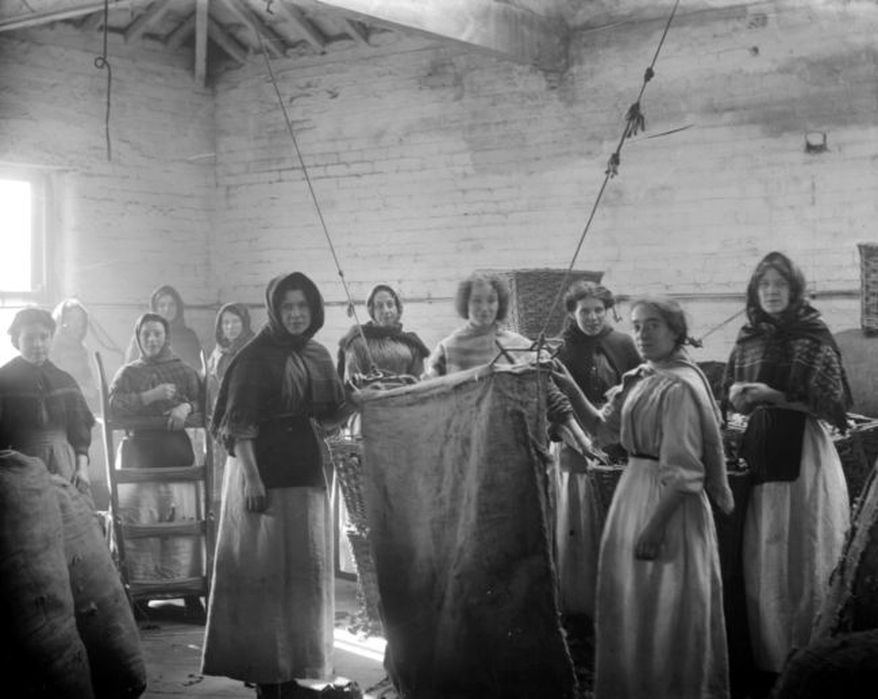- Home
- Site Index
- About Me
-
My Books
- Book List & Themes
- Strictly for Adults Novels >
-
Tales from Portlaw
>
- No Need to Look for Love
- 'The Love Quartet' >
-
The Priest's Calling Card
>
- Chapter One - The Irish Custom
- Chapter Two - Patrick Duffy's Family Background
- Chapter Three - Patrick Duffy Junior's Vocation to Priesthood
- Chapter Four - The first years of the priesthood
- Chapter Five - Father Patrick Duffy in Seattle
- Chapter Six - Father Patrick Duffy, Portlaw Priest
- Chapter Seven - Patrick Duffy Priest Power
- Chapter Eight - Patrick Duffy Groundless Gossip
- Chapter Nine - Monsignor Duffy of Portlaw
- Chapter Ten - The Portlaw Inheritance of Patrick Duffy
- Bigger and Better >
- The Oldest Woman in the World >
-
Sean and Sarah
>
- Chapter 1 - 'Return of the Prodigal Son'
- Chapter 2 - 'The early years of sweet innocence in Portlaw'
- Chapter 3 - 'The Separation'
- Chapter 4 - 'Separation and Betrayal'
- Chapter 5 - 'Portlaw to Manchester'
- Chapter 6 - 'Salford Choices'
- Chapter 7 - 'Life inside Prison'
- Chapter 8 - 'The Aylesbury Pilgrimage'
- Chapter 9 - Sean's interest in stone masonary'
- Chapter 10 - 'Sean's and Tony's Partnership'
- Chapter 11 - 'Return of the Prodigal Son'
- The Alternative Christmas Party >
-
The Life of Liam Lafferty
>
- Chapter One: ' Liam Lafferty is born'
- Chapter Two : 'The Baptism of Liam Lafferty'
- Chapter Three: 'The early years of Liam Lafferty'
- Chapter Four : Early Manhood
- Chapter Five : Ned's Secret Past
- Chapter Six : Courtship and Marriage
- Chapter Seven : Liam and Trish marry
- Chapter Eight : Farley meets Ned
- Chapter Nine : 'Ned comes clean to Farley'
- Chapter Ten : Tragedy hits the family
- Chapter Eleven : The future is brighter
-
The life and times of Joe Walsh
>
- Chapter One : 'The marriage of Margaret Mawd and Thomas Walsh’
- Chapter Two 'The birth of Joe Walsh'
- Chapter Three 'Marriage breakup and betrayal'
- Chapter Four: ' The Walsh family breakup'
- Chapter Five : ' Liverpool Lodgings'
- Chapter Six: ' Settled times are established and tested'
- Chapter Seven : 'Haworth is heaven is a place on earth'
- Chapter Eight: 'Coming out'
- Chapter Nine: Portlaw revenge
- Chapter Ten: ' The murder trial of Paddy Groggy'
- Chapter Eleven: 'New beginnings'
-
The Woman Who Hated Christmas
>
- Chapter One: 'The Christmas Enigma'
- Chapter Two: ' The Breakup of Beth's Family''
- Chapter Three: From Teenager to Adulthood.'
- Chapter Four: 'The Mills of West Yorkshire.'
- Chapter Five: 'Harrison Garner Showdown.'
- Chapter Six : 'The Christmas Dance'
- Chapter Seven : 'The ballot for Shop Steward.'
- Chapter Eight: ' Leaving the Mill'
- Chapter Ten: ' Beth buries her Ghosts'
- Chapter Eleven: Beth and Dermot start off married life in Galway.
- Chapter Twelve: The Twin Tragedy of Christmas, 1992.'
- Chapter Thirteen: 'The Christmas star returns'
- Chapter Fourteen: ' Beth's future in Portlaw'
-
The Last Dance
>
- Chapter One - ‘Nancy Swales becomes the Widow Swales’
- Chapter Two ‘The secret night life of Widow Swales’
- Chapter Three ‘Meeting Richard again’
- Chapter Four ‘Clancy’s Ballroom: March 1961’
- Chapter Five ‘The All Ireland Dancing Rounds’
- Chapter Six ‘James Mountford’
- Chapter Seven ‘The All Ireland Ballroom Latin American Dance Final.’
- Chapter Eight ‘The Final Arrives’
- Chapter Nine: 'Beth in Manchester.'
- 'Two Sisters' >
- Fourteen Days >
-
‘The Postman Always Knocks Twice’
>
- Author's Foreword
- Contents
- Chapter One
- Chapter Two
- Chapter Three
- Chapter Four
- Chapter Five
- Chapter Six
- Chapter Seven
- Chapter Eight
- Chapter Nine
- Chapter Ten
- Chapter Eleven
- Chapter Twelve
- Chapter Thirteen
- Chapter Fourteen
- Chapter Fifteen
- Chapter Sixteen
- Chapter Seventeen
- Chapter Eighteen
- Chapter Nineteen
- Chapter Twenty
- Chapter Twenty-One
- Chapter Twenty-Two
-
Celebrity Contacts
-
Thoughts and Musings
- Bereavement >
- Nature >
-
Bill's Personal Development
>
- What I'd like to be remembered for
- Second Chances
- Roots
- Holidays of Old
- Memorable Moments of Mine
- Cleckheaton Consecration
- Canadian Loves
- Mum's Wisdom
- 'Early life at my Grandparents'
- Family Holidays
- 'Mother /Child Bond'
- Childhood Pain
- The Death of Lady
- 'Soldiering On'
- 'Romantic Holidays'
- 'On the roof'
- Always wear clean shoes
- 'Family Tree'
- The importance of poise
- 'Growing up with grandparents'
- Love & Romance >
- Christian Thoughts, Acts and Words >
- My Wedding
- My Funeral
- Audio Downloads
- My Singing Videos
- Bill's Blog
- Contact Me
Chapter Five
'Harrison Gardner Showdown.'
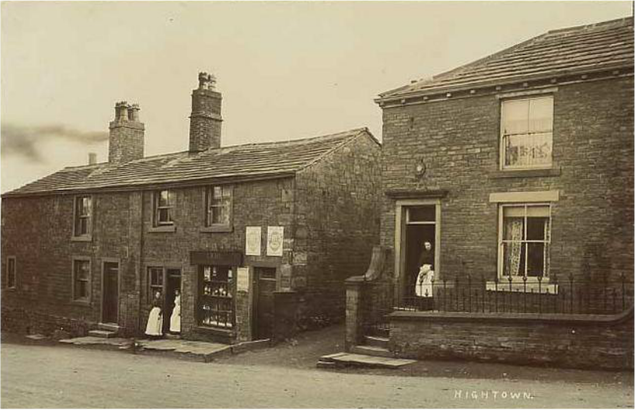
The years she spent at Harrison Gardner's were some of the happiest Beth had known. For the very first time since the age of ten she felt that she belonged to a family again. True that it wasn't her blood family who she now surrounded herself with, but for most days that she worked there, she felt part of a much larger thing than herself. It was as though she felt part of a greater whole.
Most lunch breaks were often made up of sandwiches eaten in the canteen, which had been bought at the shop of Harry Hodgeson just up the road. When it came to a few days before pay day and money was often scarce, Harry would allow his customers to obtain food on the tick to carry them over and maintain his customer base. Some of the older workers bought tins of soup to get warmed up in the canteen kitchen.
Most lunch breaks were often made up of sandwiches eaten in the canteen, which had been bought at the shop of Harry Hodgeson just up the road. When it came to a few days before pay day and money was often scarce, Harry would allow his customers to obtain food on the tick to carry them over and maintain his customer base. Some of the older workers bought tins of soup to get warmed up in the canteen kitchen.

While the daily work was always hard at the mill, Beth constantly found the atmosphere lively. There was never the feeling of boredom to be found there as there was always too much going off; always something or someone to gossip about! Often, some of the single workers would travel across to the Castle Hill pub in Almondbury on a weekend for a few drinks and a gossip. In the morning and evening mist, Castle Hill often looked like a castle in the clouds and it was one of Beth's favourite places to visit.
The mill contained many departments and in many ways it was deceptive like one of those grand houses in the posher parts of London that looks to be of normal size from the outside, but inside has numerous rooms that stretch back farther than the eye can see. While the firm had originally started off relatively small, over the previous hundred years the owners had purchased more and more land at its rear and had extended the number of sheds and outbuildings to keep pace with its increasing orders and build-up of workforce.,
The mill contained many departments and in many ways it was deceptive like one of those grand houses in the posher parts of London that looks to be of normal size from the outside, but inside has numerous rooms that stretch back farther than the eye can see. While the firm had originally started off relatively small, over the previous hundred years the owners had purchased more and more land at its rear and had extended the number of sheds and outbuildings to keep pace with its increasing orders and build-up of workforce.,
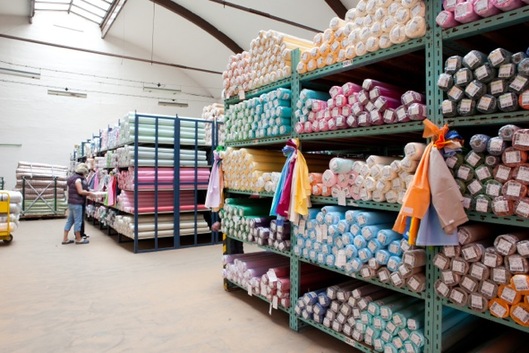
In general, all of the sections where the women employees worked were on the outer perimeter of the firm and were shielded from the general elements of the open weather by the protection of four walls and a roof. The women's work departments included the mending room, the yarn drying machine room, the packing room and the hanking department, which twisted and wound the finished yarn into a loose ball that was then made into hanked bundles of a fixed weight, ready for packaging and delivery.
It was only in the area of their immediate working environment that the conditions of the women were more favourable than those enjoyed by the men. Indeed, their work sheds had sufficient protection from the open weather and coldness that none of the male workers enjoyed. While there were no radiators in them to provide heat during the cold winter months, there were always small heaters to be found that the women brought from their own homes.
The male workers prepared the textile materials for cleansing and then scoured the cloth and yarn before sending it to be dyed. This process was followed by spinning the excess water out of it in a large extractor before sending it through to the finishing processes of the women's departments where the goods were dried out completely, checked for faults and mended if required, before finally being bundled and packed ready for delivery to the customer.
It was only in the area of their immediate working environment that the conditions of the women were more favourable than those enjoyed by the men. Indeed, their work sheds had sufficient protection from the open weather and coldness that none of the male workers enjoyed. While there were no radiators in them to provide heat during the cold winter months, there were always small heaters to be found that the women brought from their own homes.
The male workers prepared the textile materials for cleansing and then scoured the cloth and yarn before sending it to be dyed. This process was followed by spinning the excess water out of it in a large extractor before sending it through to the finishing processes of the women's departments where the goods were dried out completely, checked for faults and mended if required, before finally being bundled and packed ready for delivery to the customer.
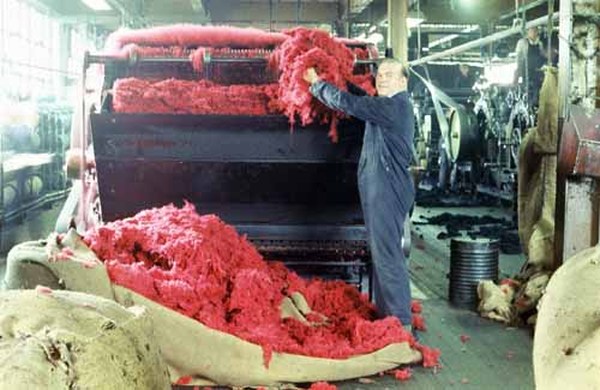
Some of the working sheds or sections where the men of Harrison Gardner's worked were partially open to the weather elements, whereas the combing, scouring shed and dye house were inside.
Although the scouring shed and dye house were fully protected by four walls and a roof, because of the extensive steam produced by the machines that processed the yarn and the heat that was generated, it was always necessary for the large doors to these departments never to be closed. Consequently, anyone who worked close to the doors on a cold winter's day would be working in a constant draught, catching the chill of the cold air one minute and being surrounded by the heat of the steam the next, whereas those employees working in the centre of these departments were usually low in body fat and rarely needed to diet.
Positioned in the centre of the works was the dye house. This was the largest section of the mill which contained thirty six dying vats varying in size. Each vat was numbered 1 to 36 with those vats that dyed the most complicated of colours being assigned the lowest number. Thus, the man who operated vat number 1 was the most experienced vat operator in the dye house with the least experienced vat operator being asked to manage vat number 36.
Although the scouring shed and dye house were fully protected by four walls and a roof, because of the extensive steam produced by the machines that processed the yarn and the heat that was generated, it was always necessary for the large doors to these departments never to be closed. Consequently, anyone who worked close to the doors on a cold winter's day would be working in a constant draught, catching the chill of the cold air one minute and being surrounded by the heat of the steam the next, whereas those employees working in the centre of these departments were usually low in body fat and rarely needed to diet.
Positioned in the centre of the works was the dye house. This was the largest section of the mill which contained thirty six dying vats varying in size. Each vat was numbered 1 to 36 with those vats that dyed the most complicated of colours being assigned the lowest number. Thus, the man who operated vat number 1 was the most experienced vat operator in the dye house with the least experienced vat operator being asked to manage vat number 36.
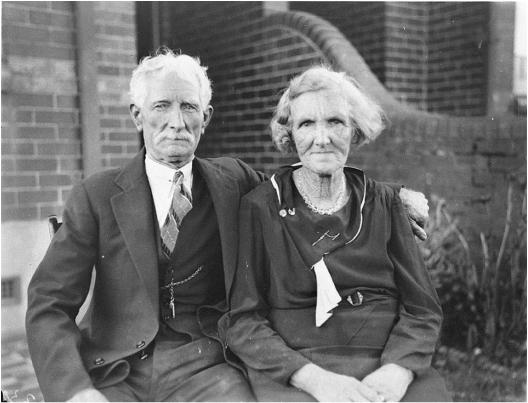
Progress from vat trainee operator was very easy to follow from that of young man to that of old hand. One merely noted the number of the vat they operated. Another practice which the company used to encourage getting more work from their employees was that of 'pride and shame'.
Each week, the output figures and the earnings of each particular vat operator to be pooled would be posted in the works' canteen for all to see. The lowest number vat was always the most difficult dying vessel to operate as the finished shade of yarn and cloth was harder to achieve on the first attempt than the standard colours dyed by the other vats with the highest numbers. Hence the lower number vats were invariably operated by the longest serving and more experienced workers.
However, vat number 1 had the greatest potential to earn the most for its experienced operative than any of the other dying vessels whereas vat number 36 was paid at such a poorer rate that it usually earned the least.
Operator of vat one was Henry Pearson. 72-year-old Henry had worked in the dye house for fifty three years and both he and his 70 year old wife Tilly who worked in the sorting and packing room, had been allowed to stay on after their normal retirement age of 65 years because of their knowledge and robust health.
Earning the most wages to be pooled was akin to being declared as 'worker of the week' as well as being publicly identified as being the person who had earned the most money for everyone else in the mill. Conversely, having earned the least to be pooled naturally attracted a sense of shame to it and the operative would have to put up with jibes of being the weak link in the chain and having to be financially carried by the other workers that week. Thus there was a constant incentive by all vat operatives to continue to work hard, learn fast and be moved onto a lower numbered vat at the earliest opportunity.
Each week, the output figures and the earnings of each particular vat operator to be pooled would be posted in the works' canteen for all to see. The lowest number vat was always the most difficult dying vessel to operate as the finished shade of yarn and cloth was harder to achieve on the first attempt than the standard colours dyed by the other vats with the highest numbers. Hence the lower number vats were invariably operated by the longest serving and more experienced workers.
However, vat number 1 had the greatest potential to earn the most for its experienced operative than any of the other dying vessels whereas vat number 36 was paid at such a poorer rate that it usually earned the least.
Operator of vat one was Henry Pearson. 72-year-old Henry had worked in the dye house for fifty three years and both he and his 70 year old wife Tilly who worked in the sorting and packing room, had been allowed to stay on after their normal retirement age of 65 years because of their knowledge and robust health.
Earning the most wages to be pooled was akin to being declared as 'worker of the week' as well as being publicly identified as being the person who had earned the most money for everyone else in the mill. Conversely, having earned the least to be pooled naturally attracted a sense of shame to it and the operative would have to put up with jibes of being the weak link in the chain and having to be financially carried by the other workers that week. Thus there was a constant incentive by all vat operatives to continue to work hard, learn fast and be moved onto a lower numbered vat at the earliest opportunity.

Being a dye house, this massive building at the mill centre would be filled with steam all day long.The vat operators who worked in this noisy, steamy damp environment gradually adjusted to not being able to see more than twelve inches in front of their noses all day long. However, any other mill worker who didn't work in the dye house and needed to enter it or walk through it would do so in virtual blindness. The doors to the dye house would be always left open at each side to enable the steam to disperse, but walk inside a mere two yards and one was back to nil visibility.
Being at the mill's centre, all of the men who pushed the carts filled with cloth and yarn from one section of the mill to another either had to push the heavy carts all around the circumference of the mill or take the shortest route from 'A' to 'B', and that involved pushing the carts through the steamy dye house. All women workers going from their work section to the office or from one department at one side of the mill grounds to one department at the other side were also faced with a similar choice; either to take the long route or cut through the steamy dye house.
Whenever the women workers decided to cut through the dye house on their journey from here to there, they would cover their mouths to keep out the steam and run through in the hope that they were blindly running in the right direction. Once a woman or young girl entered the steamy dye house, she found herself negotiating a pea-soup fog besides running the gauntlet of male wolf whistlers and phantom touchers. Although their run would take only minutes from one side to the other, the female worker would not feel safe until she was through the dye house and could see again.
Whenever the women workers decided to cut through the dye house on their journey from here to there, they would cover their mouths to keep out the steam and run through in the hope that they were blindly running in the right direction. Once a woman or young girl entered the steamy dye house, she found herself negotiating a pea-soup fog besides running the gauntlet of male wolf whistlers and phantom touchers. Although their run would take only minutes from one side to the other, the female worker would not feel safe until she was through the dye house and could see again.

As soon as some young vat operator saw a woman coming through, he would send out a cry of, 'Skirt in the house' so that any of the other vat operators also knew that she was coming their way. When some of the younger men who operated the dying vats learned of a female approaching, as they passed by, an outstretched hand might emerge from the steam and touch her breasts or lift up her skirt!
Similarly, the shout, 'Skirt in the house' would be exchanged for 'Stranger in the house' whenever Mr John, who was prone to take a smoking break throughout the day, would walk through the dye house as he often did.
Similarly, the shout, 'Skirt in the house' would be exchanged for 'Stranger in the house' whenever Mr John, who was prone to take a smoking break throughout the day, would walk through the dye house as he often did.
XXXXX
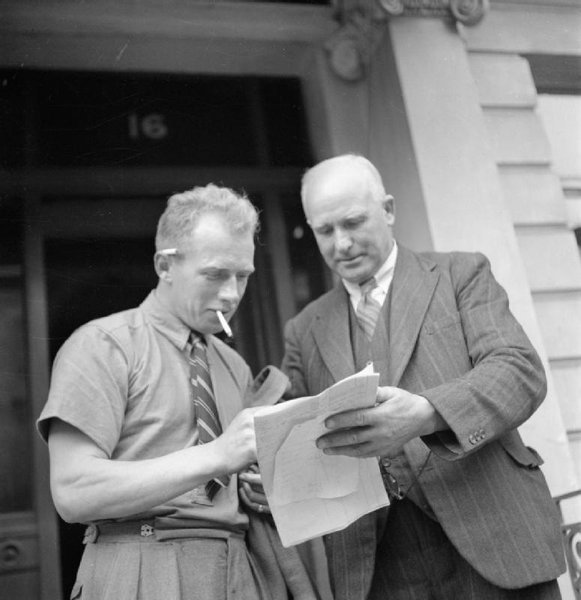
The shop steward at Harrison Gardner's was Ted Hopkins. Ted was a chain smoker who was never seen without a cigarette in his mouth and another lodged in his right ear ready to light up when he'd smoked the other down to the butt. Ted had been a shop steward for five years and although the post was put up for election annually, he had never been contested. As a general rule of thumb, the role of shop steward at Harrison Gardner's was largely a nominal position that once filled, usually remained filled until the occupant of the post died and his place was taken by another.
The reason for Ted having a clear run each year was simply because he was Mr Frank's choice for the role and was therefore favoured by Mr John also. While most of the workers at the mill generally accepted Ted in the role of shop steward, many referred to him as being 'a gaffer's man' in moments when they were less charitable in their thoughts and words.
While it was true that the wages that could be earned by Harrison Gardner workers were higher than any other textile firm in the Shire, the overall weekly output achieved by the workforce was also significantly higher than the weekly production of any other mill around!
The reason for Ted having a clear run each year was simply because he was Mr Frank's choice for the role and was therefore favoured by Mr John also. While most of the workers at the mill generally accepted Ted in the role of shop steward, many referred to him as being 'a gaffer's man' in moments when they were less charitable in their thoughts and words.
While it was true that the wages that could be earned by Harrison Gardner workers were higher than any other textile firm in the Shire, the overall weekly output achieved by the workforce was also significantly higher than the weekly production of any other mill around!
Where it was felt that their shop steward Ted fell down in his duties was in not having been able to secure for the workforce better conditions in other aspects of their job. You see, in many ways this 20th century firm was still being operated by old machinery in 19th century conditions. The dyehouse could have been better ventilated, the working sheds should have had industrial radiators in them for the cold winters and fans for the hot summers. All working cloggs and boiler suits should have been provided more frequently for the vat operators, along with long-enough aprons to prevent the hot water running into their footwear as they carried the rods of cloth and yarn out of their vats at the end of the dying process. Women sorting the shoddy in an outer shed worked in badly ventilated conditions, which in the winter was cold and damp. Often during winter months, they would look like Victorian mill workers as they wore shawls to protect their ears and heads from the bitter cold and long flowing aprons that touched the ground to prevent the damp slubbing drenching them.
The Harrisons were capitalists through and through and had been brought up in their business from father to son knowing that lower overheads allied to an expenditure ceiling which was governed by 'a mend and make do' attitude, equalled greater profits.
The Harrisons were capitalists through and through and had been brought up in their business from father to son knowing that lower overheads allied to an expenditure ceiling which was governed by 'a mend and make do' attitude, equalled greater profits.
XXXXX

During her first year at the mill, Beth was frequently chatted up by a number of the single chaps as well as a few of the married ones who risked declaring their interest in her. While there were a number of good looking men who would have dated her at the drop of a hat, none seemed to move the feelings of Beth to the extent to take up any of them on their offer. It may have been only to take her to the pictures, the pub or the Saturday night dance they offered, but however handsome the suitor, Beth always declined.
Deep down, since her rape experience during her early teenage years, Beth had not the same inclinations as other young women of her age to be in the presence of virile young men. In fact, she had in large measure suppressed her sexual desires for so long now that she was genuinely fearful of ever unleashing them again. She feared courtship and dating because of the expectations that it brought; that after a short period of acquaintanceship, an increasing familiarity between the man and woman to move their relationship onto the next stage of intimacy would be naturally expected. Beth knew deep down that the likelihood of negotiating this phase literally scared the pants off her!
In time, when it became common gossip that she would go out with none of the many suitors and had turned down all their offers, a few of the women started to spread rumours that 'Bonny Beth batted for the other side'. One afternoon Beth heard Nancy Bellend say something disparaging about her when the other women didn't know that she was within hearing distance. Beth was so annoyed that without second thought she confronted Nancy head on.
Deep down, since her rape experience during her early teenage years, Beth had not the same inclinations as other young women of her age to be in the presence of virile young men. In fact, she had in large measure suppressed her sexual desires for so long now that she was genuinely fearful of ever unleashing them again. She feared courtship and dating because of the expectations that it brought; that after a short period of acquaintanceship, an increasing familiarity between the man and woman to move their relationship onto the next stage of intimacy would be naturally expected. Beth knew deep down that the likelihood of negotiating this phase literally scared the pants off her!
In time, when it became common gossip that she would go out with none of the many suitors and had turned down all their offers, a few of the women started to spread rumours that 'Bonny Beth batted for the other side'. One afternoon Beth heard Nancy Bellend say something disparaging about her when the other women didn't know that she was within hearing distance. Beth was so annoyed that without second thought she confronted Nancy head on.

Beth was naturally angry by Nancy's words and initially intended to ignore them. However, when Nancy sensed the other woman to be backing off, she mistook Beth's action for weakness and instead verbally attacked her in a manner that was designed to clearly deride her and make her appear as clearly not being 'one of them'. Nancy placed her face into a permanent scowl and pointed her finger aggressively at Beth as she stabbed the air in timing with her angry words.
"Ever since you've been here, missy, you've never been known to date one of the chaps or even share a saucy joke on the side. In fact, for the past nine months the girls here have opened a book on you and have been taking odds on you either being a virgin or a dyke! Now, why don't ya spill the beans, missy and tell us which is it?"
"Ever since you've been here, missy, you've never been known to date one of the chaps or even share a saucy joke on the side. In fact, for the past nine months the girls here have opened a book on you and have been taking odds on you either being a virgin or a dyke! Now, why don't ya spill the beans, missy and tell us which is it?"
For a moment, Beth was going to give Nancy what for before deciding to allow discretion to be the better part of valour and walk away. Just then Nancy made the mistake of adding injury to insult by deriding and questioning the character of Beth's father.
"Or could it possible be that you prefer the intimate and tender touch of your old dad to that of a young chap?" Nancy sneered as she laughed raucously and looked towards the other women workers present in an invitation to join in the laughter.
The other women however, knew that Nancy had overstepped the line once she had invoked the name of Beth's father into the verbal taunt and remained silent, waiting to see Beth's response. Beth didn't disappoint any of the crowd who wanted to see a fight and without warning she launched herself at Nancy and after grabbing her by the hair she flung her to the ground with a degree of force that simply stunned the older woman.
"Or could it possible be that you prefer the intimate and tender touch of your old dad to that of a young chap?" Nancy sneered as she laughed raucously and looked towards the other women workers present in an invitation to join in the laughter.
The other women however, knew that Nancy had overstepped the line once she had invoked the name of Beth's father into the verbal taunt and remained silent, waiting to see Beth's response. Beth didn't disappoint any of the crowd who wanted to see a fight and without warning she launched herself at Nancy and after grabbing her by the hair she flung her to the ground with a degree of force that simply stunned the older woman.

"Stay there!" Beth warned as she pointed her finger close enough to Nancy's eye to poke it out had she moved to getr up. "Stay there on the floor or else I'll knock your fucking head off! My father's dead, you.....you bitch and that's what you'll be if you so much as try to get up or speak wrongly of him again!"
Nancy looked up at Beth and could clearly see the vast amount of anger blended with disgust in the younger woman's face. She had enough wit to realise that her words had overstepped the mark and that if she so much as moved from her prostrate position, that Beth was determined to flatten her there and then!
When the other women heard Beth say her father was dead, they withdrew from observing the spectacle any longer and felt partly ashamed that they'd ever allowed themselves to have been a part of it. Next, Beth flung her arms up in the air in a gesture of exasperation and walked off, leaving Nancy to scramble to her feet and to rejoin the other women with her tail between her legs.
Nancy looked up at Beth and could clearly see the vast amount of anger blended with disgust in the younger woman's face. She had enough wit to realise that her words had overstepped the mark and that if she so much as moved from her prostrate position, that Beth was determined to flatten her there and then!
When the other women heard Beth say her father was dead, they withdrew from observing the spectacle any longer and felt partly ashamed that they'd ever allowed themselves to have been a part of it. Next, Beth flung her arms up in the air in a gesture of exasperation and walked off, leaving Nancy to scramble to her feet and to rejoin the other women with her tail between her legs.

